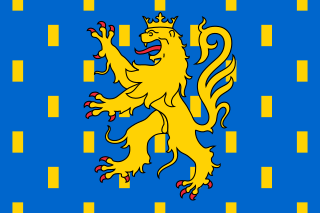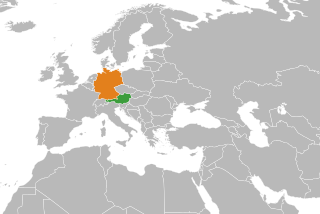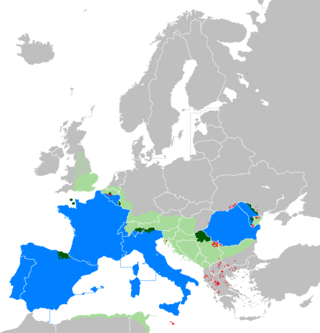
The word emperor can mean the male absolute ruler of an empire. Empress, the female equivalent, may indicate an emperor's wife, mother/grandmother, or a woman who rules in her own right and name. Emperors are generally recognized to be of the highest monarchic honor and rank, surpassing kings. In Europe, the title of Emperor has been used since the Middle Ages, considered in those times equal or almost equal in dignity to that of Pope due to the latter's position as visible head of the Church and spiritual leader of the Catholic part of Western Europe. The emperor of Japan is the only currently reigning monarch whose title is translated into English as "Emperor".

The Holy Roman Empire, officially known as the Holy Roman Empire of the German Nation after 1512, was a political entity in Western, Central, and Southern Europe that developed in the Early Middle Ages and continued until its dissolution in 1806 during the Napoleonic Wars.
Latin is an Italic language, originally spoken in ancient Rome and its empire.
Reich is a German noun whose meaning is analogous to the English word "realm"; this is not to be confused with the German adjective "reich" which means "rich". The terms Kaiserreich and Königreich are respectively used in German in reference to empires and kingdoms. The Cambridge Advanced Learner's Dictionary indicates that in English usage, the term "the Reich" refers to "Germany during the period of Nazi control from 1933 to 1945".
Fürst is a German word for a ruler as well as a princely title. Fürsten were, starting in the Middle Ages, members of the highest nobility who ruled over states of the Holy Roman Empire and later its former territories, below the ruling Kaiser (emperor) or König (king).

The Free County of Burgundy was a medieval feudal state ruled by a count from 982 to 1678. It was also known as Franche-Comté, from French: franc comte meaning 'free count', and was located in the modern region of Franche-Comté. It bordered the Duchy of Burgundy to the west, which was part of France from 843.
Kin usually refers to kinship and family.

Traditional rank amongst European royalty, peers, and nobility is rooted in Late Antiquity and the Middle Ages. Although they vary over time and among geographic regions, the following is a reasonably comprehensive list that provides information on both general ranks and specific differences. Distinction should be made between reigning families and the nobility – the latter being a social class subject to and created by the former.
Romano-Germanic may refer to:
The H're people are an ethnic group of Vietnam, speaking a language in the Mon–Khmer family. Most H're live in the Quảng Ngãi and Bình Định provinces of Vietnam's South Central Coast, and numbered 149,460 in 2019.

Relations between Austria and Germany are specially close due to their shared history, culture, and language; with Germans being the ethnic group and German being the official language of both countries.

The legacy of the Roman Empire has been varied and significant, the Roman Empire itself built upon the legacy of other cultures, has had long-lasting influence with broad geographical reach on a great range of cultural aspects, including state institutions, law, cultural values, religious beliefs, technological advances, engineering and language.

Historical Western Pomerania, also called Cispomerania,Fore Pomerania, Front Pomerania or Hither Pomerania, is the western extremity of the historic region of Pomerania forming the southern coast of the Baltic Sea. Western Pomerania's boundaries have changed through the centuries as it belonged to various countries such as Poland, the Duchy of Pomerania, Sweden, Denmark, as well as Prussia which incorporated it as the Province of Pomerania.
Imperial Army (HRE) may refer to:
This page is based on this
Wikipedia article Text is available under the
CC BY-SA 4.0 license; additional terms may apply.
Images, videos and audio are available under their respective licenses.






